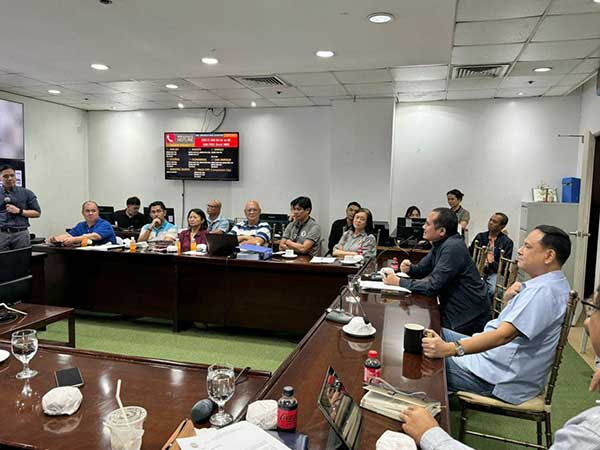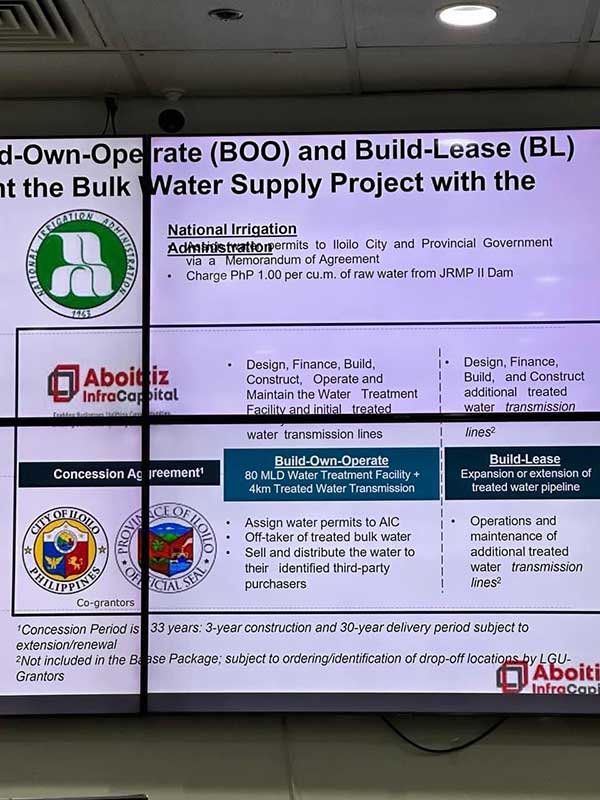
By Francis Allan L. Angelo
The proposal of a private firm to take over the Iloilo Bulk Water Supply Project is drawing increasing concern on the details of the plan as it suggests significant financial burdens on the province’s taxpayers and lead to steep increases in water tariffs.
Under the PHP 8.45 billion proposal, Aboitiz InfraCapital Inc. aims to supply 80 million liters of treated water per day over a 33-year concession period.
The treated bulk water would be sold directly to local government units (LGUs), who would then act as intermediaries, reselling the water to distributors and other buyers.
But the structure of the deal has raised red flags, especially with regard to the financial obligations it imposes on the LGUs, according to sources privy with the proposal.
Aboitiz’s offer includes an “availability fee,” which would require the provincial government to cover the cost of the water capacity even if no buyers are found.
This obligation means that taxpayers’ money could be used to pay for the water, creating a significant contingent liability for the province.
Unlike in the typical Public-Private Partnership (PPP) where the private sector bears the risk, the proposal seems to transfer the risk to the government and, by extension, the taxpayers.
Another red flag raised by the sources is the potential impact on water prices.
The proposed rate of PHP 51 per cubic meter is a dramatic increase from the current rate of PHP 20 per cubic meter for the first 10 cubic meters used by residential consumers.

The hike could lead to an additional PHP 30 or more per cubic meter, significantly raising the cost of water for Iloilo residents.
“Water is essential, and making it more expensive will only add to the financial strain many of us are already feeling. This deal could make our water bills unaffordable,” one of the sources said.
The proposed arrangement diverges from traditional PPPs, where the private entity usually assumes the financial risk of finding buyers.
In the case of Aboitiz’s proposal, that burden is placed on the LGUs, which are not equipped to manage water distribution operations. This setup could strain the province’s budget, potentially diverting funds away from other critical services.
We also sought MIWD to comment and it highlighted the framework of Government-to-Government (G2G) transaction which would significantly bring the bulk water cost down.
Such G2G partnerships could streamline operations, reduce costs, and eliminate the need for an additional layer of bureaucracy.
The provincial government, led by Governor Arthur Defensor Jr., is currently evaluating the proposal, although the process has been delayed beyond the 10-day deadline stipulated by the PPP Code. Governor Defensor has emphasized that the evaluation is still ongoing and confidential, urging patience as the government thoroughly examines the details.
“We are still in the process of evaluating the proposal, and due to confidentiality, we cannot discuss specifics at this time,” Governor Defensor said.
Meanwhile, the Iloilo City government, under Mayor Jerry Treñas, has already rejected the proposal but is now reconsidering it for further study.




















